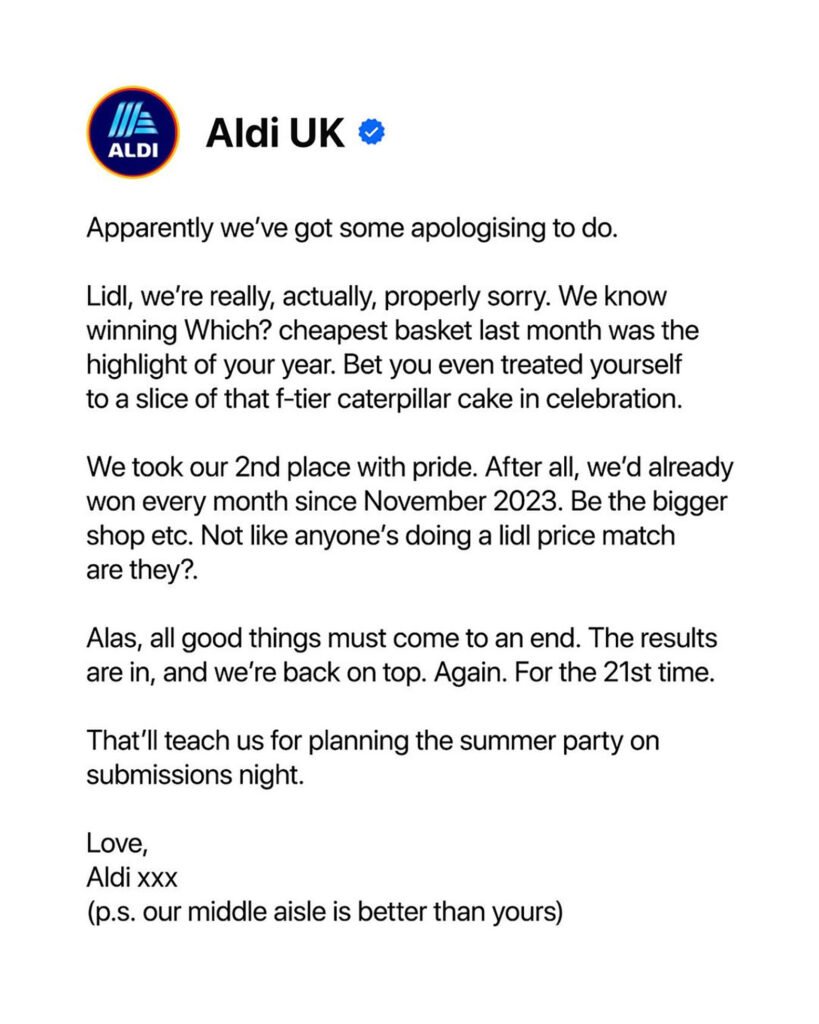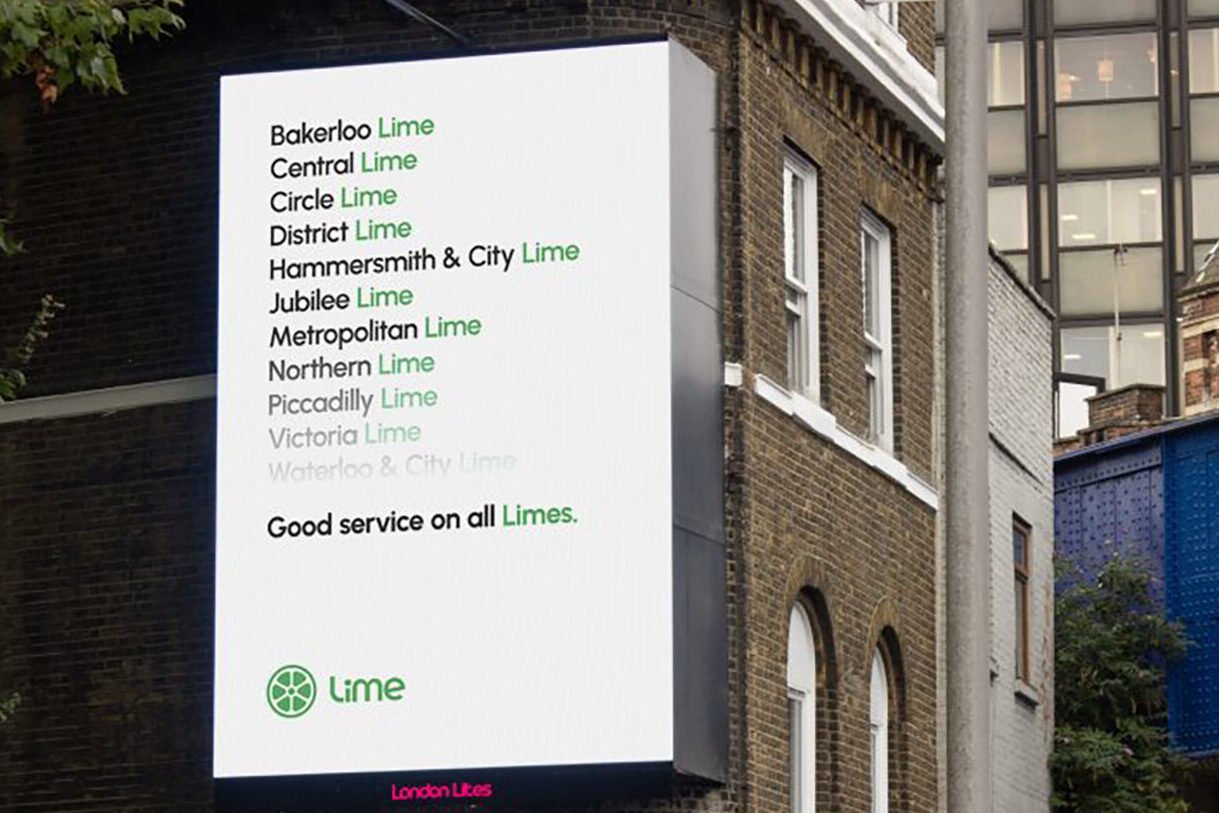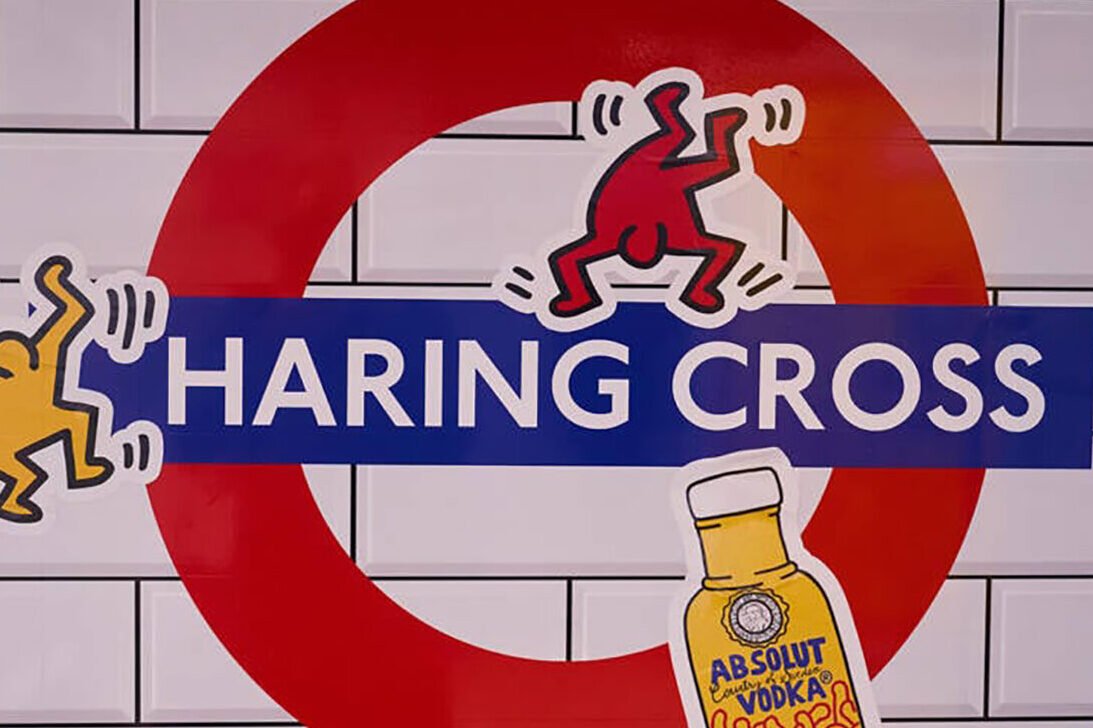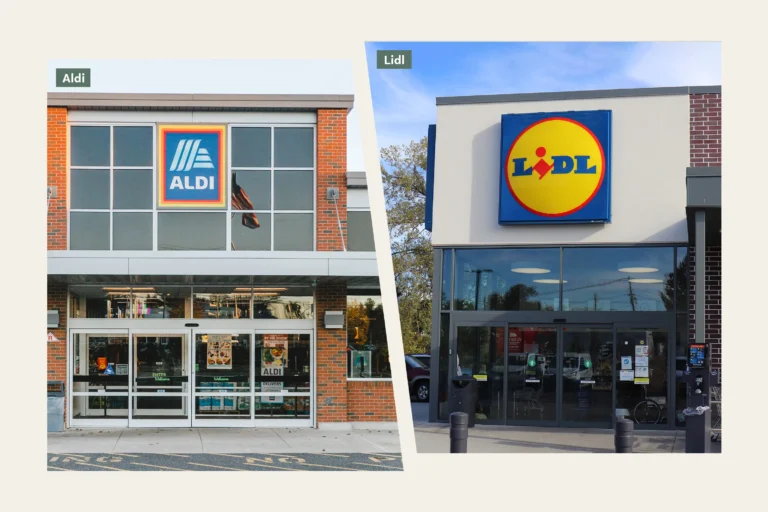Relatable marketing is a strategy that focuses on creating content and experiences that feel familiar to audiences. The idea is to tap into the way people think and feel to create stronger connections. In the past, we’ve explored strategies from sensory marketing to rage-baiting, each shaping consumer behaviour in its own way. In September, we explored campaigns built on relatable marketing, where brands can connect through humour, creativity, shared experiences, and authentic storytelling. From supermarket banter to pop-up art installations, each activation demonstrates that relatability drives engagement, builds trust, and creates memorable moments.
Check out these relatable marketing moments that had us hitting pause (and maybe you, too!)
Relatable Marketing through Instagram Banter: Aldi vs Lidl

Aldi and Lidl reignited their playful Instagram rivalry, sparking a fresh wave of consumer engagement. Aldi took the lead, celebrating Which? crowning them the UK’s cheapest basket for the 21st consecutive time – and cheekily reminding everyone that some still call it “Aldi Price Match.”
The Strategy:
Aldi leaned into humour and cultural rivalry, using playful social banter to reinforce its reputation for price leadership and value.
The Result:
The campaign generated buzz across social platforms, driving engagement and cementing Aldi’s reputation as the value-for-money champion.
Relatable Marketing through Shared Experiences: Lime Bikes

During the London Tube strikes, Lime made the most of the chaos with clever copywriting. While commuters dealt with delays and disruptions, Lime showed that cycling is a smart and stress-free alternative.
The Strategy:
A brilliant example of turning a crisis into a marketing moment, with sharp OOH copy that tapped into current events and hit the mark during peak commuter frustration.
The Result:
The campaign worked because it tapped into a moment and offered a timely, accessible alternative. By addressing real pain points with clever, relevant messaging, Lime not only boosted brand awareness but also turned first-time riders into potential long-term users.
Relatable Marketing Through Cultural Immersion: Absolut’s “Haring Cross” Pop-Up

Premium vodka brand Absolut turned London’s Charing Cross station into “Haring Cross,” celebrating artist Keith Haring with a bold rebrand. The colourful installation created an immersive experience, turning an everyday commute into a moment of art and culture.
The Strategy:
By reimagining a public space, Absolut blended art, culture, and brand identity, using creativity to pay tribute to Keith Haring.
The Result:
Charing Cross sees an average of 76,248 entries and exits daily. Amid a sea of ads, Absolut’s activation stood out as a “stop-and-see” moment. With heavy footfall, plus media coverage and social sharing, it reinforced Absolut’s reputation for culturally relatable creativity.
Pastael by Maddie Borge: Relatable Marketing Through Creator-Led Narratives

Content creator Maddie Borge launched Pastael, a travel accessory brand offering a line of brightly coloured packing cubes. Borge’s videos revolve around her love of travel, often giving a peek into her daily routines. Pastel was born from her frustrations with dull, uninspiring travel gear. By sharing her personal story, she brought authenticity and relatability, connecting with her existing audience and giving the brand a launch platform that quickly sold out.
The Strategy:
Pastael’s strategy was all about creator-led storytelling. Borge turned her own travel frustrations into a product solution, using her established audience’s trust to launch a brand that felt both authentic and highly relatable.
The Result:
The brand struck a chord with travel enthusiasts and Borge’s followers, showcasing the power of influencer-led entrepreneurship—so much so that stocks sold out three times in a row since launch!
Why Relatable Marketing Works
The campaigns of the month prove that relatability, even in its simplest form, is essential for cutting through the marketing noise. By connecting through shared experiences, cultural moments, or genuine personal stories, brands earn trust, stick in minds, and stay relevant. When marketing feels real, it works.
Is there a campaign that stood out to you recently? Share with us on socials.





